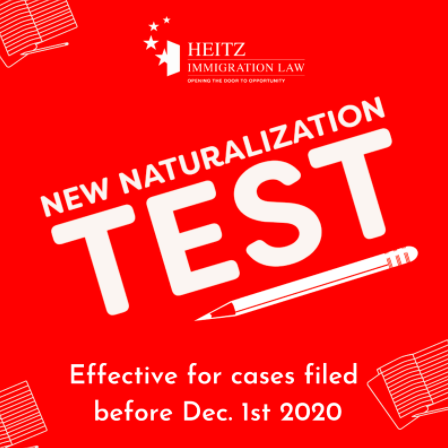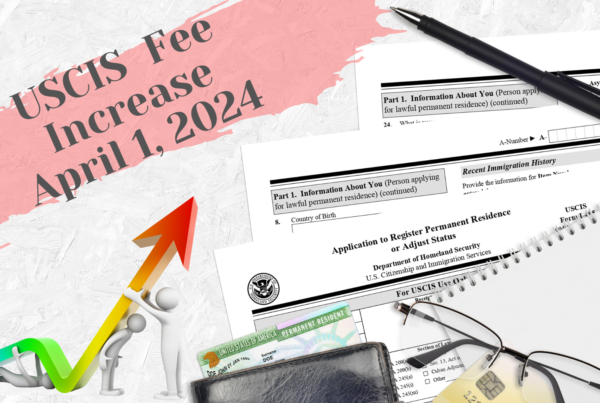UPDATE: Effective March 1, 2021, USCIS changed their policy on administering the new Naturalization test! For anyone who filed their Naturalization application between Dec. 1, 2020 and March 1, 2021 and gets an interview before April 19, 2021, you will have the choice on whether you want to take the old test or the new test. I recommend you take the old test because it is easier and has less questions and is not as biased as the new test! (Read my post below for details about the new test). This is great news for citizenship applicants.
On December 1st, 2020, U.S. Citizenship and Immigration Services (USCIS) put into effect a new version of their United States naturalization civics test. If you filed your N-400 application after Dec. 1, 2020, then you will be taking the new test. This test is an essential part of the naturalization process, where lawful permanent residents (green card holders) apply to become a U.S. citizen. The test was last revised in 2008 by the Bush administration, and has remained the same for the last twelve years.
The naturalization test is intended to test an applicant’s knowledge of U.S. “history, government, and civic values,” according to USCIS. It features a wide variety of questions about the nation’s history, all of which are published online with the official correct answers. At the USCIS office, the test is administered orally, meaning an immigration officer will ask the applicant the questions out loud. The applicant will have to reply verbally with the correct answer that they have either learned or memorized from the list.
The new version of the naturalization test is significantly changed from the previous version. For the past twelve years, there has been a pool of 100 questions from which the officer would choose 10 to ask. Of those 10, the applicant would have to correctly answer 6 of them to score a 60% passing grade. Once an applicant had answered 6 correctly – even if they were the first 6 questions – the test would end.
In the new version of the test, created by the Trump administration, there are now 128 potential questions to learn the answer to. The officer will choose 20 of them to ask the interviewer, who will now have to answer 12 correctly. This keeps the success rate the same at 60%. Unlike the previous test, the agent must ask all 20 questions, even if the applicant has already successfully answered 12.
This means that the applicant will have to answer more questions, both correctly and in general. The content of the questions has also changed. All geographical questions relating to states and oceans have been removed, in favor of questions about the presidency and history. Several questions have gotten harder, such as asking for five of the original states instead of the previously-asked-for three. Of the 128 questions currently on the test, only 57 remained unaltered from the last test. The other 71 are either brand new or changed.
Some of the questions have also had their correct answer changed. For instance, if you took the test in November 2020 and were asked “Who does a U.S. senator represent?,” the official correct answer would be “All people of the state.” If you were asked the same question in December 2020, the new official correct answer would be “Citizens of their state.” Some critics of the new test have claimed it represents a more conservative view of history than the previous test, which they felt was more objective.
The naturalization test is longer and harder than it was before. Thankfully, all applicants are still given all the questions to study ahead of time. With the incoming President-elect Biden, it’s possible there may again be changes to this test, especially since there has been much criticism of the new test having a significant Conservative bias and even having some mistakes!
For help with your immigration process, including the naturalization test, contact Heitz Immigration Law today. We speak English and Spanish, and we can help you live and work in the USA.









